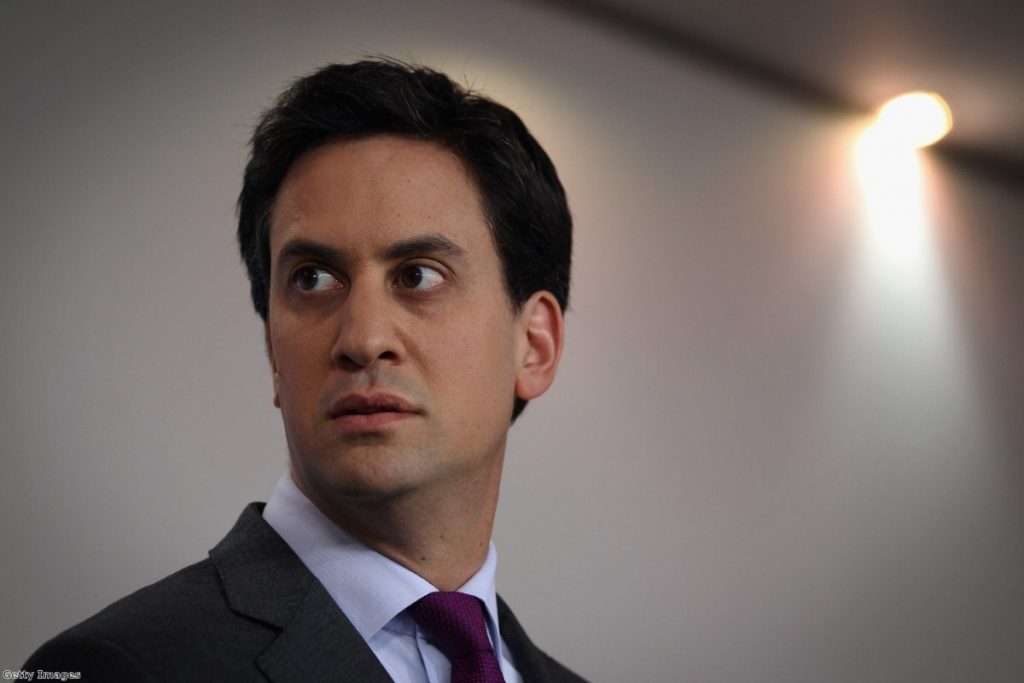While heads are turned, Miliband faces the greatest challenge to his leadership
Ed Miliband moved to quell Blairite challenges to his leadership last night, as he told MPs to show party unity ahead of the upcoming local elections.
The Labour leader has benefitted from all eyes being on the death of Margaret Thatcher as he addresses the internal divisions, which are easily the most difficult he has faced since beating his brother in 2010.
"We are not a party of commentators," he reportedly told backbenchers during his weekly parliamentary party meeting.
"We have got to recognise that the next election has to be a change election. That means change from the past.


"New Labour was founded 18 years ago. That is two decades ago. Tony Blair taught us that the world changed. The world does change."
He added: "We are like a football team that is winning at half-time. Let's go out and win."
John Prescott, who served as deputy prime minister under Blair but is intensely loyal to the party regardless of the leadership, backed Miliband's appeal last night, saying it would be "crazy" for squabbling to take place ahead of the local elections.
"Let's stop complaining and get campaigning," he said.
Reports suggest Miliband and Blair will conduct a crisis meeting to kill off the public criticism of the leadership as early as tomorrow.
Tony Blair's criticism of Miliband's direction on tax and welfare in the New Statesman last week prompted a succession of party grandees to break cover and add their own suggestions to those of their former leaders.
In the days following the publication of the magazine, former Cabinet colleagues Peter Mandelson, Alan Milburn, John Reid and Tessa Jowell have all questioned the direction of the current Labour leadership.
The outbreak of disunity may be a response to the departure of David Miliband to New York, which provided concrete proof he had given up on his ambitions to lead the party.
Miliband will be grateful the debate is being ignored by the media because of the relentless coverage of Thatcher's funeral, but it comes at a time when Labour finally felt it was building confidence in his leadership.
His recent PMQs performances have been widely praised, he won plaudits for his statesmanlike response to the death to Thatcher and the party continues to build a double-digit poll lead.
On the flip side, his own approval ratings stubbornly refuse to improve.
A new ICM-Guardian poll found 51% thought he was doing a bad job while just 28% said he was doing a good job, leaving him with a net approval rating of -23.
Some commentators believe the Labour leader is pursuing the uninspiring but potentially lucrative strategy of relying on his core 29% support and then adding six per cent from disgruntled Liberal Democrats.
That kind of conservative strategy contributes to Blairite fears that Miliband is placing himself in a vulnerable position, given there is likely to be a significant erosion in his poll lead as he approach election day.
Several Labour Mps have insisted the '35% strategy' is nonsense, with Michael Dugher calling it "complete bollocks".
Tory sources insist Labour needs to win an extra 1,000 seats at next month's local elections to remain credible, but that figure is far higher than that provided by most respectable election experts.
Instead, Labour sources say they are aiming for an extra 200 seats. Both numbers are attempts to manage expectations in the race, but the Labour figure is probably closer to reality than the Tory one.












